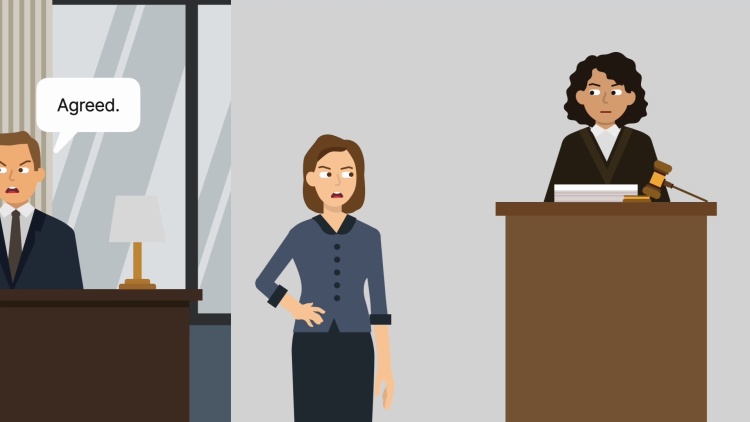Lysak v. Seiler Corp.
Massachusetts Supreme Judicial Court
614 N.E.2d 991 (1993)

- Written by Sara Rhee, JD
Facts
Patricia Lysak (plaintiff) applied for a position as a marketing director for the Seiler Corporation (Seiler) (defendant). In February 1987, Lysak interviewed with William Zammer, the president of Seiler. Lysak was pregnant at the time of the interview, but her pregnancy was not discussed. According to Zammer, Lysak voluntarily stated during the interview that she was not planning to have more children. Zammer did not solicit this information. Lysak was hired and soon thereafter informed Zammer that she was pregnant. Zammer later testified that he would have hired Lysak even if he knew that she was pregnant but felt betrayed by Lysak’s misrepresentation regarding her intention to have more children. Zammer told Lysak that he could no longer trust her. Lysak soon thereafter suggested that Seiler terminate her employment so that she could continue working as an independent contractor. Zammer agreed, and Lysak’s employment was terminated. Lysak later sued Seiler, alleging that Seiler had terminated her employment because she was pregnant. The jury found in favor of Seiler. Lysak appealed, arguing that she was entitled to a directed verdict and that the trial court had failed to instruct the jury that Seiler could not terminate her employment based on a misrepresentation concerning her pregnancy.
Rule of Law
Issue
Holding and Reasoning (O’Connor, J.)
What to do next…
Here's why 899,000 law students have relied on our case briefs:
- Written by law professors and practitioners, not other law students. 47,000 briefs, keyed to 994 casebooks. Top-notch customer support.
- The right amount of information, includes the facts, issues, rule of law, holding and reasoning, and any concurrences and dissents.
- Access in your classes, works on your mobile and tablet. Massive library of related video lessons and high quality multiple-choice questions.
- Easy to use, uniform format for every case brief. Written in plain English, not in legalese. Our briefs summarize and simplify; they don’t just repeat the court’s language.





